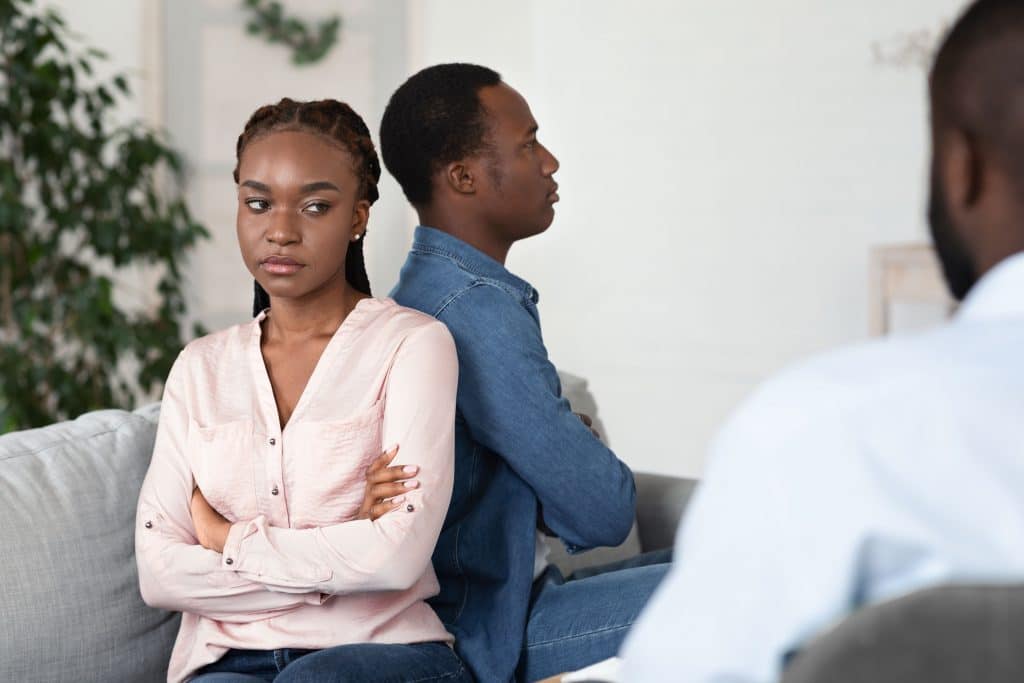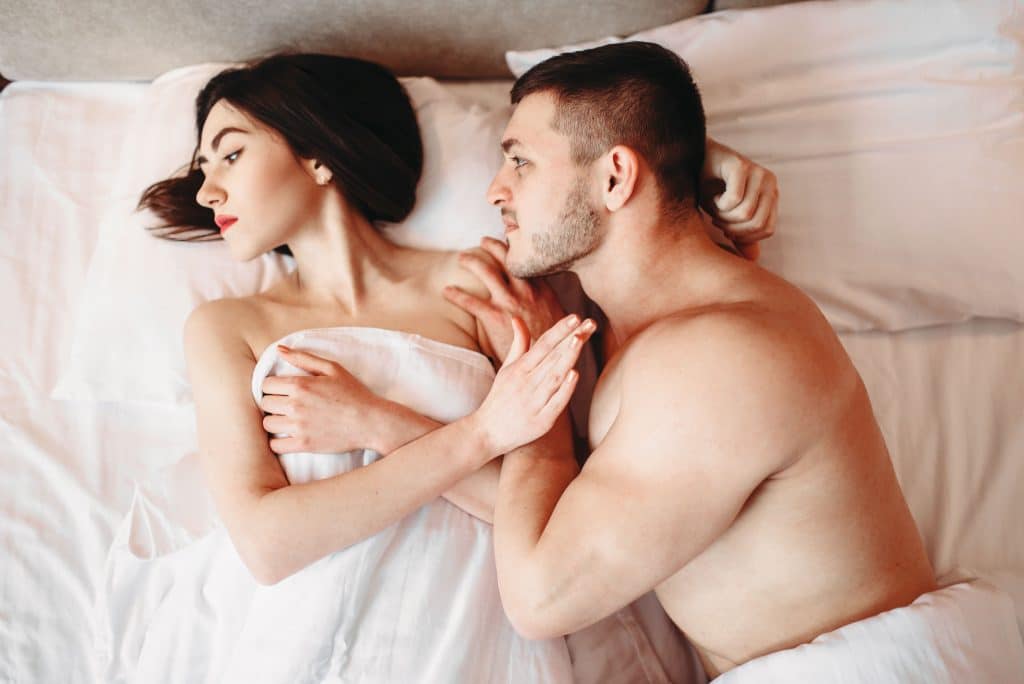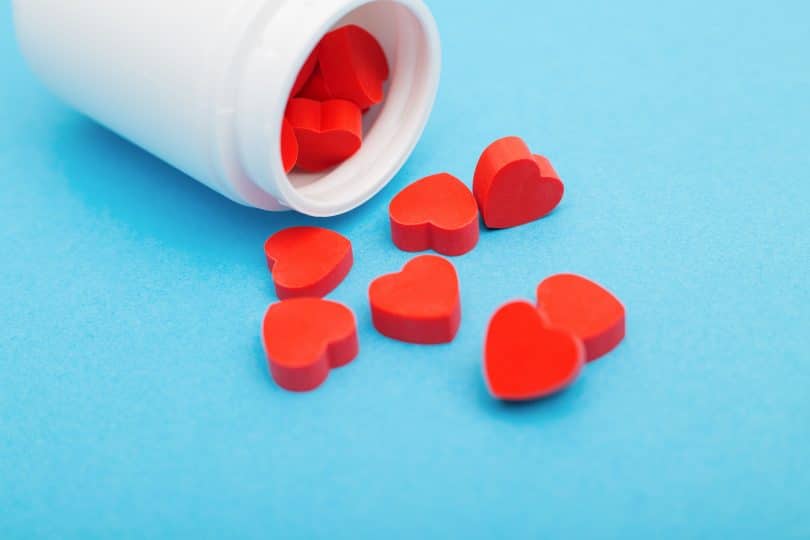This Valentine’s Day, don’t let the spark go out. Maintaining a relationship is tough, and for some couples, staying together means going the extra mile. Recently, investigation opened back up into MDMA as an aid in couple’s therapy, something it was used for last century. Read on to find out more about it, and if it could benefit you and your partner.
What is MDMA?
MDMA (3,4-Methylenedioxymethamphetamine) is a drug in the psychostimulant category, along with a range of other compounds including cocaine, methamphetamine, and even caffeine. It has the chemical formula C11H15NO2. It’s often lumped together with psychedelics because of a similar mode of action, which includes forcing a large increase of the neurotransmitter serotonin. Like psychedelics, it causes sensory hallucinations, but with a peppier affect.
It was first synthesized by Merck Pharmaceutical in 1912, however, it was essentially shelved until the 1970’s when chemist Alexander Shulgin came across a new way to produce it. He did what doctors of that time did frequently, and tested the drug on himself and his psychotherapist friends. Upon understanding it to have therapeutic effects, it was employed in the treatment of psychiatric disorders in the mid-1900s, as a part of psychedelic-assisted therapy; the coupling of psychedelics (or similar) drugs, with psychotherapy.
This went on for some time, with MDMA proving to be a useful tool in psychotherapy. However, the US government had it out for pretty much any drug, and illegalized it in 1985 via the newly instated Comprehensive Crime Control Act. This law allows the government to ban drugs if its determined to be an emergency. And this even with a judge’s ruling that it doesn’t belong in Schedule I.
Hey there, cool to have you here with us. Head to the Cannadelics Weekly Newsletter to access direct updates; and for the best promotions on cannabis flowers, vapes, edibles, smoking “stuff”, cannabinoid compounds, and a bunch more. We’ll get you whatever you’re looking for; shop like a pro!
Today it still sits in Schedule I of the DEA’s Controlled Substances list, as well as Schedule I of the Convention on Psychotropic Substances, a global treaty on the regulation of different compounds. One state, Colorado, has legalized medical MDMA with a pre-emptive bill; however, that legalization is dependent on the US federal government passing a measure first. MDMA is promoted by the FDA through a ‘breakthrough therapy‘ status, which was given to an experimental drug made by the organization MAPS.
MDMA often goes by the names ecstasy, and molly, though these names often imply a more impure version. Though it’s a synthetically made entheogen, its produced from safrole oil; something that in turn led to the complete illegalization of the sassafras plant.
MDMA couple’s therapy – a framework
In 2021, Frontiers in Psychology published this theoretical paper entitled Couple Therapy With MDMA—Proposed Pathways of Action. The paper seeks to explore:
“The neurobiological and neurochemical effects of MDMA in a relational context, the emotional, behavioral, cognitive and somatic effects within a dyadic frame, and how empathy, communication, perception of social connection/support, non-avoidance, openness, attachment/safety, bonding/social intimacy and relationship satisfaction, are all impacted by MDMA, and can be harnessed to facilitate systems-level and interpersonal healing and growth.”
The paper pulls on the previous research and psychotherapeutic work done with MDMA, much of it before the drug was illegalized in the 1980s. In fact, MDMA was used in couple’s therapy during its time of legal use; this was one of its first applications. Author Anne C. Wagner points to two studies performed in 1986 and 1998 by G R Greer, and R Tolbert, which both take a look at multiple MDMA therapy cases, including with couples.
One of the things to come out of the studies was that MDMA coupled with therapy “demonstrated improvements in fear of emotional hurt and improved communication and introspection.” Earlier reports by Alexander Shulgin and his wife Anne from the 1970s, go into how MDMA is beneficial for couples; highlighting how its “an excellent tool for communication and to navigate relational issues.”

Wagner points out that “MDMA’s empathogenic qualities have made it a prime candidate as an adjunct to psychotherapy. When considering the couple therapy context, understanding the neurochemical experience related to romantic love illuminates this potentially catalytic combination.”
She also sets up a model for MDMA therapy which follows the general model of psychedelic assisted therapy. It involves counseling sessions before the MDMA experience, in which the therapist gets to know the couple and their issues. These are followed by sessions involving MDMA; which are followed by integrative sessions which come last, and are meant to help the couple navigate their experience with MDMA, and what it all means.
How does MDMA affect sex drive?
If you’ve ever hung out with someone on MDMA, you know they get really excited by the feeling of your sweater… or really, any sweater. MDMA affects the senses, causing users to experience a heightened response to tactile stimuli. Things feel different on MDMA, and lets be honest, while some of this is merely intimate, a lot of it is downright sexual. Does this mean that MDMA can increase a person’s sex drive? If so, this could be an important part of MDMA centered couple’s counseling.
Mind Cure Health Inc., a life sciences company out of Vancouver, Canada, launched a research initiative into this question in 2021. The project specifically focuses on female hypoactive sexual desire disorder. As in, its looking into how MDMA affects women with low sex drive. The project is aptly titled, the Desire Project; and consists of clinical research focused on treating this lowered sexual desire in adult women, with the help of MDMA-assisted psychotherapy.
Female hypoactive sexual desire disorder (HSDD) is actually recognized officially as of 1950, and is said to affect approximately 14% of the female population. This number could be as high as 40%, though, as that’s the percentage that self-rated themselves as having a lower sex drive, as per 2018’s Incidence and Knowledge of Hypoactive Sexual Desire Disorder and Its Treatment: A Survey, published in Obstetrics & Gynecology.
It’s thought that HSDD isn’t connected to age-related hormone decreases, and affects the women in question, through their entire lives. This disorder, while certainly not deadly, is linked to “lower health-related quality of life, lower general happiness and satisfaction with partners and more frequent negative emotional states.” The reluctance of women to speak about it often means no chance of treatment.

The goal of the study isn’t to administer MDMA and expect all problems to disappear. Rather, it’s to “utilize MDMA-assisted therapy to target underlying issues contributing to a lack of female sexual desire and orgasm and eventually develop a training and licensing model to distribute therapeutic protocols to clinics.”
According to the company’s own website, “MINDCURE’s research into female Hypoactive Sexual Desire Disorder (HSDD) brings together a team of experts in sexual disorders and psychedelics to drive clinical outcomes and promote female sexual desire using MDMA.” This project is still in motion, and we don’t know the outcome yet.
This MDMA study is not directly about couple’s therapy, but seeks to attack one of the many issues that can cause problems in a relationship – simply not wanting to have sex. Though not wanting to have sex can be a symptom of unhappiness in a relationship, it can also be tied to other factors like depression or PTSD, that may be helped by using MDMA.
Conclusion
MDMA gets dubbed the ‘love drug’ for good reason. And perhaps we can use its abilities to really drive up the love. As research into MDMA increases, its place as an aid in couple’s therapy may rival its place as a treatment for PTSD.
This Valentine’s day, if you’re having trouble with your partner, and not sure what to do, consider the options. If you’re both cool with it, maybe try taking an MDMA trip together, to see if that helps. It’s not an official industry yet, so you’re on your own as far as treatment. But if you and your partner are comfortable, you can use it on your own. As always, please do whatever you choose to do, responsibly.
We appreciate you being a part of this! Welcome to Cannadelics.com; a news site where we work to consistently bring you the utmost in cannabis and psychedelics reporting. Join us on a regular basis to keep up with the Joneses, and subscribe to the Cannadelics Weekly Newsletter, to ensure you’re never late to get a story.









